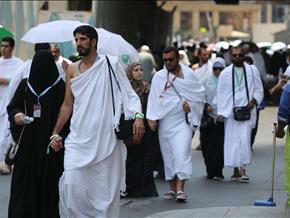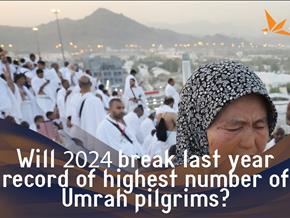.webp)
Islamabad, Pakistan - In a decisive move to ensure the religious aspirations of thousands of its citizens, the government of Pakistan has made a final, fervent appeal to the Kingdom of Saudi Arabia. The core of this appeal lies in the urgent need to reinstate the private Hajj quota for the upcoming Hajj 2025. This crucial matter affects approximately 67,000 Pakistani pilgrims who, through no fault of their own, face the agonizing prospect of missing this sacred pilgrimage due to unforeseen technical complications.
The Dire Situation of 67,000 Pilgrims Awaiting the Hajj 2025
The gravity of the situation cannot be overstated. A staggering 67,000 Pakistani individuals, many of whom are elderly and have long awaited this opportunity, are currently in limbo. These prospective pilgrims had diligently planned and financially prepared for their journey to the holy sites for Hajj 2025. Their exclusion stems from technical issues and delays in payments to service providers, a situation for which they bear no direct responsibility. The emotional and spiritual distress this has caused is immense, with many feeling their lifelong dream slipping away.
A Formal Appeal to the Saudi Authorities for Hajj 2025
Recognizing the urgency and the profound impact on these 67,000 pilgrims, the Ministry of Religious Affairs of Pakistan has formally addressed the authorities in Saudi Arabia. This comprehensive appeal, penned in both English and Arabic, meticulously outlines the plight of the affected individuals. The letter emphasizes the advanced age of a significant portion of these Pakistani pilgrims, highlighting that Hajj 2025 might represent their last chance to fulfill this fundamental pillar of Islam.
Assurances and Commitments for Future Hajj Arrangements
In its earnest plea, the Pakistani government has provided firm assurances to Saudi Arabia regarding future Hajj arrangements. The Ministry of Religious Affairs has explicitly stated that all rules and regulations will be strictly adhered to from next year onwards. This commitment underscores Pakistan's dedication to ensuring a seamless and compliant process for all future Hajj seasons. The current predicament, it is emphasized, is an exceptional circumstance that warrants compassionate consideration for the 67,000 pilgrims hoping to perform Hajj 2025.
The Root Cause: Technical Issues and Service Provider Delays Affecting Hajj 2025
The unfortunate situation leading to the potential exclusion of these 67,000 pilgrims for Hajj 2025 is attributed to technical issues and delays in the timely payment of service provider fees. Despite the fact that the required funds had already been deposited with the Saudi authorities, these procedural hiccups have inadvertently jeopardized the participation of a substantial number of Pakistani faithful. The Ministry's letter transparently addresses this lapse, taking responsibility while earnestly seeking a resolution for the affected pilgrims.
Request for Flexibility and Islamic Solidarity for Hajj 2025
The appeal from Pakistan extends beyond a mere request for reinstatement of the private Hajj quota. It also includes a heartfelt plea for any remaining accommodation in Mina to be allocated to these stranded pilgrims. This gesture, the Pakistani government argues, would not only alleviate the distress of the 67,000 individuals but also serve as a powerful demonstration of Islamic solidarity and brotherhood between the two nations. Granting these pilgrims the opportunity to partake in Hajj 2025 would resonate deeply within the Muslim world.
Prime Minister's Assurances and Efforts for the Hajj Pilgrims
The gravity of the situation has also drawn the attention of the highest echelons of the Pakistani government. Prime Minister Shehbaz Sharif has personally assured that all possible efforts are being made to resolve the issue concerning the private Hajj quota and the 67,000 pilgrims affected. His direct involvement underscores the government's commitment to ensuring that these citizens are not deprived of their religious obligation to perform Hajj 2025.
Inquiry into the Misuse of Private Hajj Quota
In a parallel development, the Religious Affairs Minister has ordered a thorough inquiry into the alleged misuse of the private Hajj quota. This step reflects the government's commitment to transparency and accountability in the Hajj process. The investigation aims to identify any irregularities or mismanagement that may have contributed to the current crisis, ensuring that such issues are not repeated in future Hajj arrangements.
Financial Implications and the Private Hajj Organizers
The predicament has also brought to light the significant financial stakes involved for the private Hajj organizers. Reports indicate that approximately Rs200 billion belonging to these organizers are currently held up in Saudi Arabia. The inability of the 67,000 pilgrims to proceed with their Hajj 2025 plans has significant financial repercussions for these operators, further highlighting the urgency of finding a resolution.
Hope Amidst Uncertainty for Hajj 2025
Despite the challenges, there remains a glimmer of hope for the 67,000 Pakistani pilgrims yearning to perform Hajj 2025. The proactive engagement of the Pakistani government, coupled with the appeal to the spirit of Islamic brotherhood from Saudi Arabia, offers a pathway towards a positive outcome. The coming days will be crucial in determining whether these individuals will be able to embark on their sacred journey.
The Significance of Hajj for Pakistani Muslims
The Hajj is one of the five pillars of Islam and holds immense religious significance for Muslims worldwide, including the people of Pakistan. Performing the Hajj is a lifelong aspiration for many, representing a profound act of faith and devotion. The potential inability of 67,000 Pakistani pilgrims to fulfill this obligation in Hajj 2025 has caused widespread concern and disappointment within the country.
Pakistan's Historical Participation in Hajj
Pakistan has a long and proud history of its citizens participating in the annual Hajj pilgrimage. The country typically sends a large contingent of pilgrims each year, managed through both government schemes and private Hajj operators. The current situation concerning the private Hajj quota is an unprecedented challenge that threatens to disrupt this tradition for a significant number of Pakistani Muslims in Hajj 2025.
The Role of Private Hajj Operators in Pakistan
Private Hajj operators play a vital role in facilitating the pilgrimage for a substantial segment of the Pakistani population. They provide various packages and services, catering to the diverse needs and preferences of pilgrims. The current crisis has not only affected the pilgrims but also cast a shadow over the operations and reputation of these private Hajj operators.
International Precedents and the Case of Nigeria
In its appeal, Pakistan has also drawn attention to international precedents, citing the recent granting of an additional Hajj quota of 40,000 slots to Nigeria. This reference underscores the possibility of Saudi Arabia extending similar consideration to Pakistani pilgrims affected by the technical issues surrounding Hajj 2025.
Potential Space Availability in Mina and Arafat for Hajj 2025
Adding to the hopeful outlook, reports suggest that space might still be available in Mina and Arafat, the key locations for Hajj rituals. Pakistan's appeal specifically requests that any such remaining capacity be allocated to accommodate the 67,000 pilgrims who are currently facing uncertainty regarding their Hajj 2025.
The Economic Impact of the Hajj Pilgrimage
The Hajj pilgrimage is not only a religious undertaking but also has significant economic implications for both the participating countries and Saudi Arabia. The flow of pilgrims contributes substantially to the Saudi economy, while for countries like Pakistan, it involves considerable financial outlays by the pilgrims. The disruption of the private Hajj quota for Hajj 2025 has ramifications for these economic dynamics as well.
The Importance of Timely Hajj Arrangements
The current crisis underscores the critical importance of timely and efficient Hajj arrangements. Any delays or technical glitches can have a cascading effect, impacting the travel plans and religious obligations of thousands of pilgrims. The Pakistani government's commitment to adhering to future deadlines is a recognition of this crucial aspect of Hajj management.
The Human Element: Elderly Pilgrims and Their Aspirations for Hajj 2025
At the heart of this issue are the 67,000 individuals, many of whom are elderly and infirm. For them, the opportunity to perform Hajj 2025 might be a once-in-a-lifetime event. The emotional toll of potentially missing this chance is immense, and the Pakistani government's appeal emphasizes the humanitarian aspect of the situation.
The Spirit of Islamic Brotherhood and Compassion
Pakistan's appeal to Saudi Arabia is rooted in the strong bonds of Islamic brotherhood and compassion that exist between the two nations. The request for leniency and the allocation of remaining space in Mina are framed as acts of solidarity within the Muslim Ummah. It is hoped that Saudi Arabia will respond positively to this appeal in the spirit of these cherished values, allowing the 67,000 Pakistani pilgrims to fulfill their religious duty during Hajj 2025.
The Role of the Ministry of Religious Affairs in Hajj Management
The Ministry of Religious Affairs in Pakistan plays a central role in overseeing and managing the Hajj pilgrimage for its citizens. This includes coordinating with Saudi authorities, facilitating the travel and accommodation arrangements, and ensuring the welfare of the pilgrims. The current crisis has placed the Ministry under significant pressure to find a resolution for the 67,000 affected individuals hoping for Hajj 2025.
The Use of Technology in Hajj Management
The mention of a new Saudi digital system highlights the increasing role of technology in managing the complex logistics of the Hajj. While such systems aim to improve efficiency, any glitches or incompatibility issues can lead to significant disruptions, as evidenced by the current situation affecting the private Hajj quota for Hajj 2025.
Lessons Learned and Future Hajj Policies
The challenges encountered in the lead-up to Hajj 2025 will undoubtedly provide valuable lessons for future Hajj policies and procedures in Pakistan. The need for robust communication channels, efficient payment systems, and proactive problem-solving mechanisms will be paramount to avoid similar crises in the years to come.
The Importance of Diplomatic Engagement Between Pakistan and Saudi Arabia
The ongoing situation underscores the importance of strong diplomatic ties and effective communication between Pakistan and Saudi Arabia on matters related to Hajj. The personal assurances from Prime Minister Shehbaz Sharif and the formal appeals from the Ministry of Religious Affairs highlight the level of engagement aimed at resolving the private Hajj quota issue for Hajj 2025.
The Potential for a Positive Resolution for Hajj 2025
Despite the anxieties and uncertainties, there is a strong hope that Saudi Arabia will respond favorably to Pakistan's earnest appeal. The deep-rooted relationship between the two countries, coupled with the humanitarian considerations for the 67,000 elderly pilgrims, offers a promising outlook for a positive resolution that will allow them to perform Hajj 2025.
The Impact on the Private Hajj Sector in Pakistan
The resolution of the private Hajj quota issue will have a significant impact on the private Hajj sector in Pakistan. A positive outcome will not only restore the hopes of the 67,000 pilgrims but also provide much-needed relief and stability to the private Hajj operators who have been caught in this predicament.
The Prayers and Hopes of Pakistani Pilgrims for Hajj 2025
As the final appeal reaches the authorities in Saudi Arabia, the prayers and hopes of the 67,000 Pakistani pilgrims are paramount. They yearn to embark on this sacred journey, to stand in the plains of Arafat, and to fulfill their religious obligation during Hajj 2025. The decision now rests with the Saudi authorities to respond with compassion and understanding.
Conclusion: Awaiting a Humanitarian Response for Hajj 2025
The situation surrounding the private Hajj quota for Pakistani pilgrims in Hajj 2025 is a poignant reminder of the human element in religious pilgrimages. The earnest appeal from Pakistan to Saudi Arabia is not just a diplomatic endeavor but a plea for compassion and Islamic solidarity. The hope remains that a positive and swift response will allow the 67,000 affected individuals, particularly the elderly, to realize their lifelong dream of performing Hajj this year. The world watches as these two brotherly nations work towards a resolution that upholds both the sanctity of the pilgrimage and the well-being of the faithful. The outcome will not only shape the Hajj journeys of these 67,000 pilgrims but also resonate within the broader Muslim community, reaffirming the values of unity and mutual support.
;More Travel News
-
.webp) 16-May-2025Pakistan's Urgent Plea to Saudi Arabia: Reinstating the Private Hajj Quota for 67,000 Pilgrims
16-May-2025Pakistan's Urgent Plea to Saudi Arabia: Reinstating the Private Hajj Quota for 67,000 Pilgrims -
 04-Jul-2019Destinations of the world that you can fly to under 1 Lakh from Pakistan
04-Jul-2019Destinations of the world that you can fly to under 1 Lakh from Pakistan -
 11-Nov-2019How Many People Do Hajj Annually
11-Nov-2019How Many People Do Hajj Annually -
 20-Dec-2021New Umrah Covid Policy
20-Dec-2021New Umrah Covid Policy -
 05-Jun-2023Top 10 places to visit in Turkey this summer of 2023
05-Jun-2023Top 10 places to visit in Turkey this summer of 2023 -
 28-Jan-2025Top Travel Tips for a Smooth Umrah Experience in Ramadan 2025
28-Jan-2025Top Travel Tips for a Smooth Umrah Experience in Ramadan 2025 -
 18-Mar-2025Let Us Help You Plan an Unforgettable Summer Vacation in the Northern Areas
18-Mar-2025Let Us Help You Plan an Unforgettable Summer Vacation in the Northern Areas -
 14-Nov-2019Umrah on Installment
14-Nov-2019Umrah on Installment -
 05-Nov-2025Budget Maldives Packages for Couples – Dream Getaway Under £1500 / PKR 500,000
05-Nov-2025Budget Maldives Packages for Couples – Dream Getaway Under £1500 / PKR 500,000 -
 17-Sep-2024Will 2024 break last year record of highest number of Umrah pilgrims?
17-Sep-2024Will 2024 break last year record of highest number of Umrah pilgrims? -
 03-Aug-2025How to Perform Umrah Using Saudi Arabia’s New Stopover Visa
03-Aug-2025How to Perform Umrah Using Saudi Arabia’s New Stopover Visa -
 29-Nov-2024European Air Safety Agency Lifts Restrictions on Pakistani Airlines After 4 Years
29-Nov-2024European Air Safety Agency Lifts Restrictions on Pakistani Airlines After 4 Years
